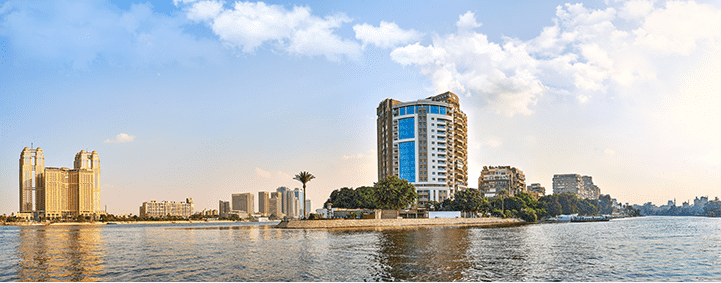A strong bounce-back in tourism across Egypt in 2018 has provided significant growth opportunities in the country’s hotel market
A recent pick-up in both tourism and trade has driven significant recovery to Egypt’s wider economy, with GDP now forecast to grow by 5.35% per annum on average over the five years to 2023. Government-led marketing schemes, new infrastructure and improved security measures have provided a boost to tourism in Egypt, resulting in a 16.5% growth to the country’s tourism market in 2018, according to the World Travel and Tourism Council.

Government-led schemes point to further investment in Egypt’s tourism sector
A liberalisation of the local currency in November 2016 resulted in a strong devaluation in the Egyptian Pound, opening attractive opportunities in terms of overseas travellers seeking relatively cheaper holidays to Egypt.
This, coupled with strengthening security for major tourism hotspots in the country, has resulted in a significant uplift in overseas visitors – reaching 11.6 million arrivals in 2018 (up 40% from the 8.3 million seen the year before).
The Egyptian government has implemented a new strategy to boost tourism, including new security protocols. This has resulted in a number of source markets and airlines re-opening flight connections to and from Egypt, including Russia. This, along with a devaluation to local currency, has sparked a resurgence in tourists from traditional major source markets. For example, British bookings to Egypt jumped 89% in 2018, compared to the year prior, according to Thomas Cook.
Additionally, government-led marketing campaigns have begun to target new source markets with the aim of widening the demand pool across Europe. This has included a particular focus on Eastern and Southern European nations, resulting in more regular connections to and from markets including Poland, Lithuania and Spain, to name a few.
Political stability, robust economic outlook and continued visitor arrival growth will continue to provide a boost to Cairo and Giza’s hotel market
Savills Research
With connectivity being strongly linked to tourist arrivals and subsequently hotel performance, the Egyptian government has focused attention on increasing airport capacity, particularly in the Cairo-Giza region. Two new airports are due to open over the next two years, with Giza’s new Sphinx International Airport due to open fully in 2020, after a period of solely internal flights – and EgyptAir launching roughly 15 flights per week as of January 2019, serving major destinations including Sharm El Sheikh, Luxor, Aswan and Hurghada. The other side of Cairo will introduce the new Katamaya International Airport, serving the new capital towards the East of Cairo.
A number of government-led tourism schemes have widened the offer available for international tourists. This includes two key museum openings – the National Museum of Egyptian Civilisation in Old Cairo along with the new $1.1 billion Grand Egyptian Museum due to open near the pyramids of Giza.
While Egypt has a well-documented overseas appeal for leisure tourists, it’s worth noting the extent to which the domestic tourism can impact the hotel market. A bulk of tourism spend in Cairo comes from domestic visitors, with key tourism drivers including corporate events, weddings and staycations. Indicators including rapid population growth across the country (which is due to increase by 8.8% between 2018 and 2023, reaching over 108 million) will continue to boost domestic tourism demand looking ahead.
Strong market fundamentals are driving growth in corporate travel across Egypt
While leisure tourism continues to drive a large proportion of Egypt’s economic growth, other emerging sectors are beginning to entice a number of international companies subsequently boosting corporate visitation to Egypt.
This is particularly the case for Cairo, with corporate travel now accounting for 67% of the city’s hospitality market demand.
Interest levels from large international corporates has heightened. For example, both Nissan and Canon are rumoured to be extensively expanding their presence in the country, given strong market fundamentals including a large young population and positive GDP outlook. Nissan have outlined projections to increase their market share in the Gulf (including Egypt) by more than 20% by 2022 (up from their current share of 15%).
In addition, Egypt has implemented a new investment framework, aimed at boosting Foreign Direct Investment through softening the administrative burden with state agencies and therefore improving the investment procedure as well as offering attractive tax incentives to potential investors.
Read the article within this publication below
.jpg)
